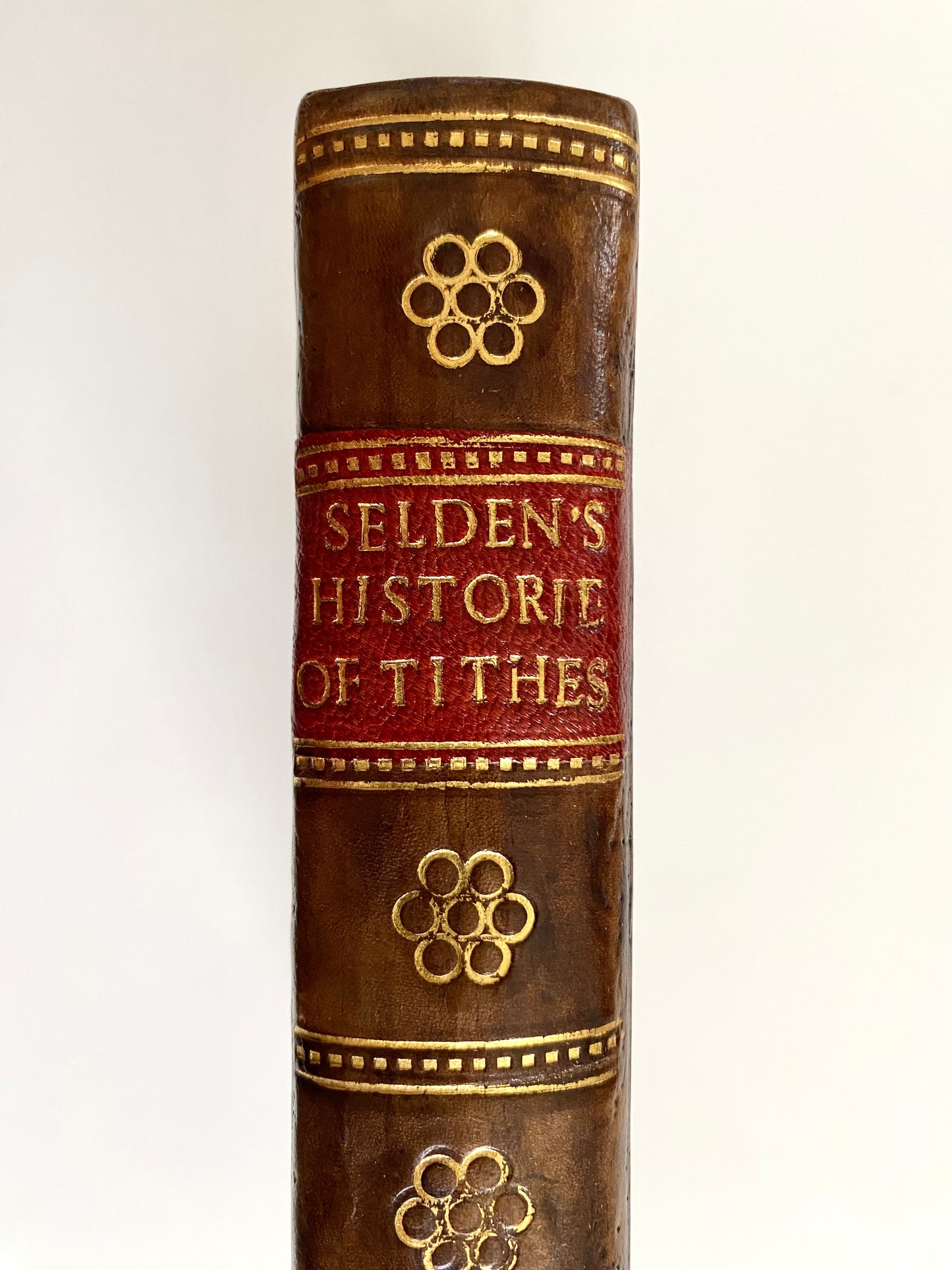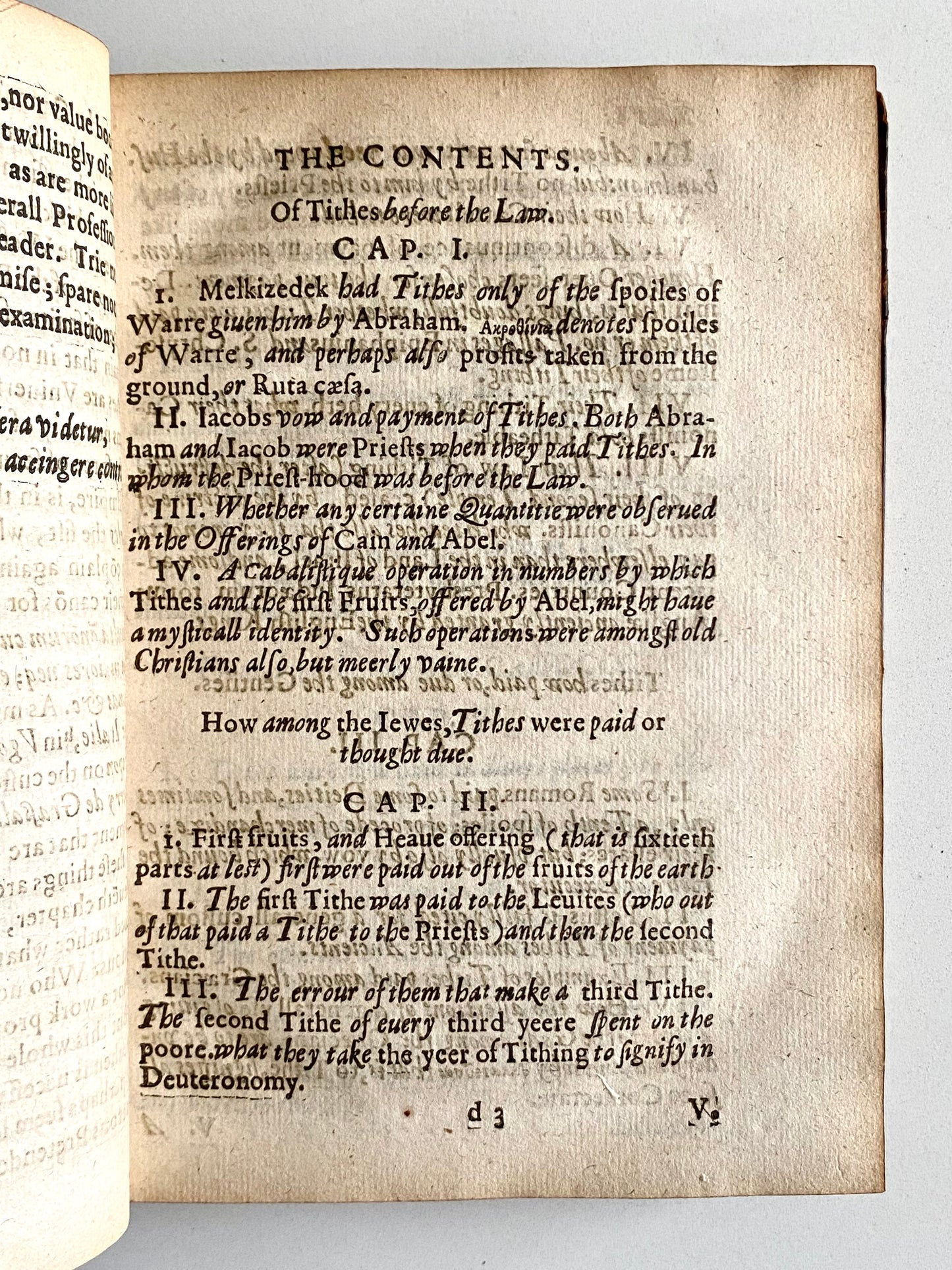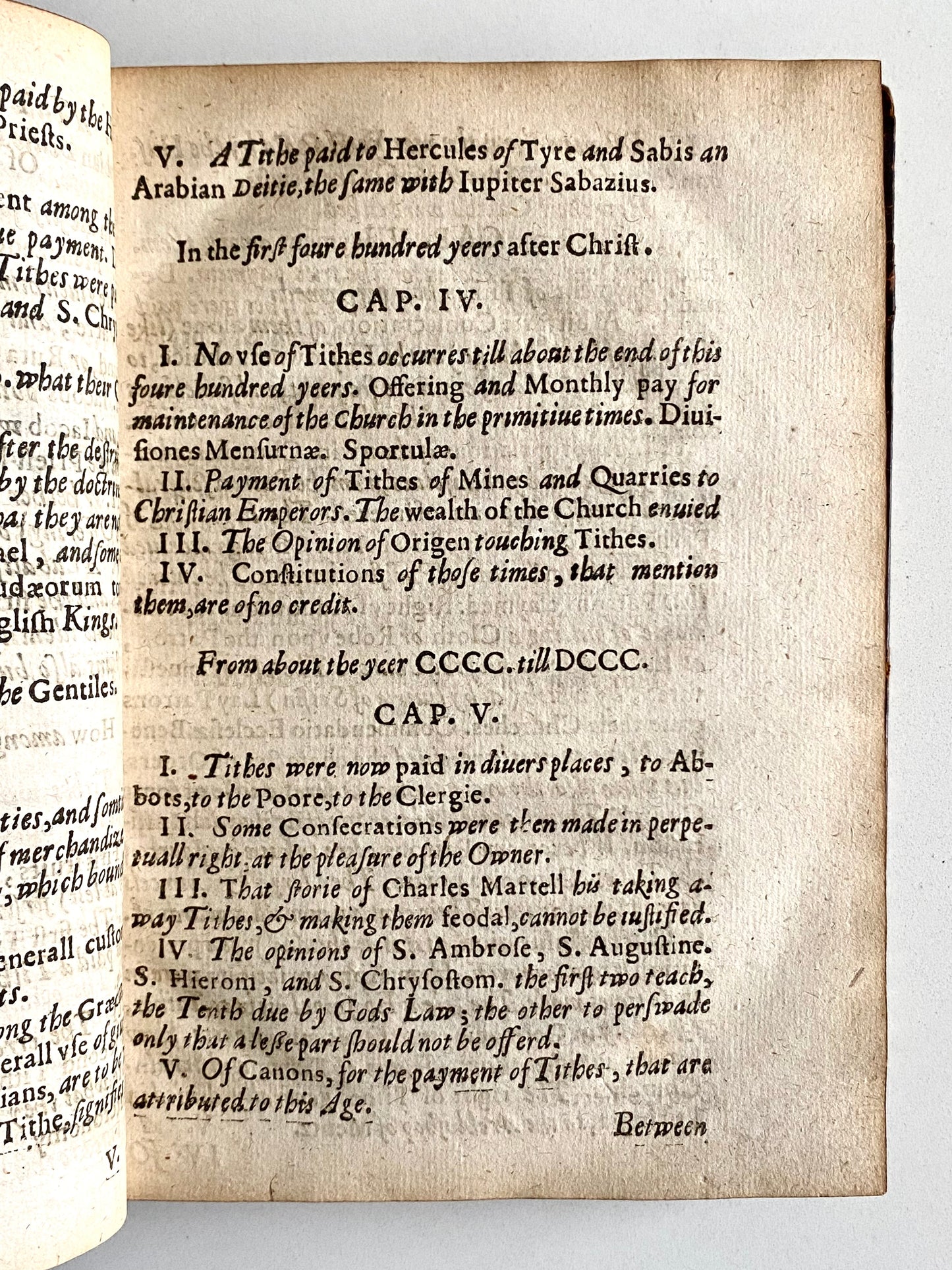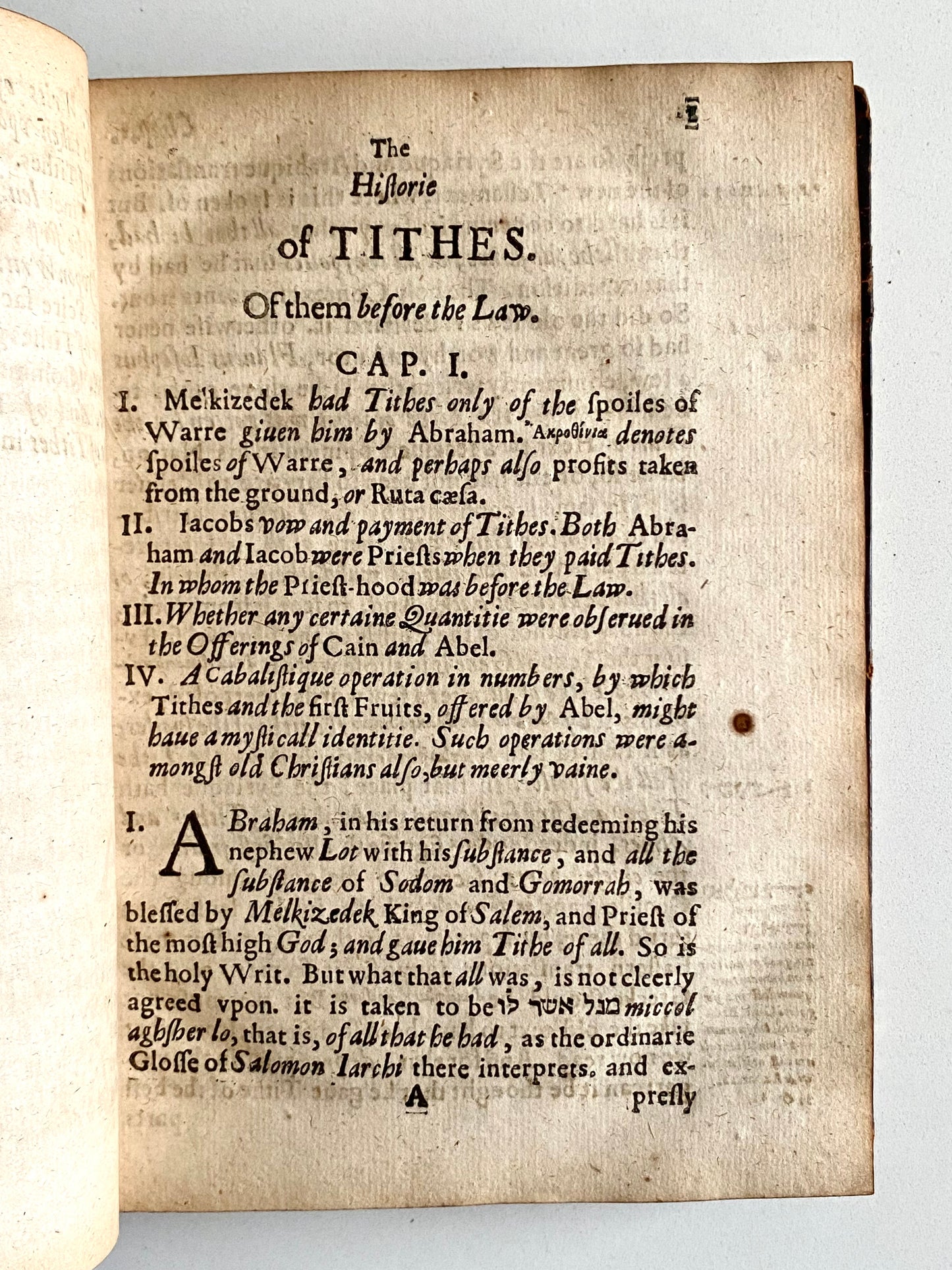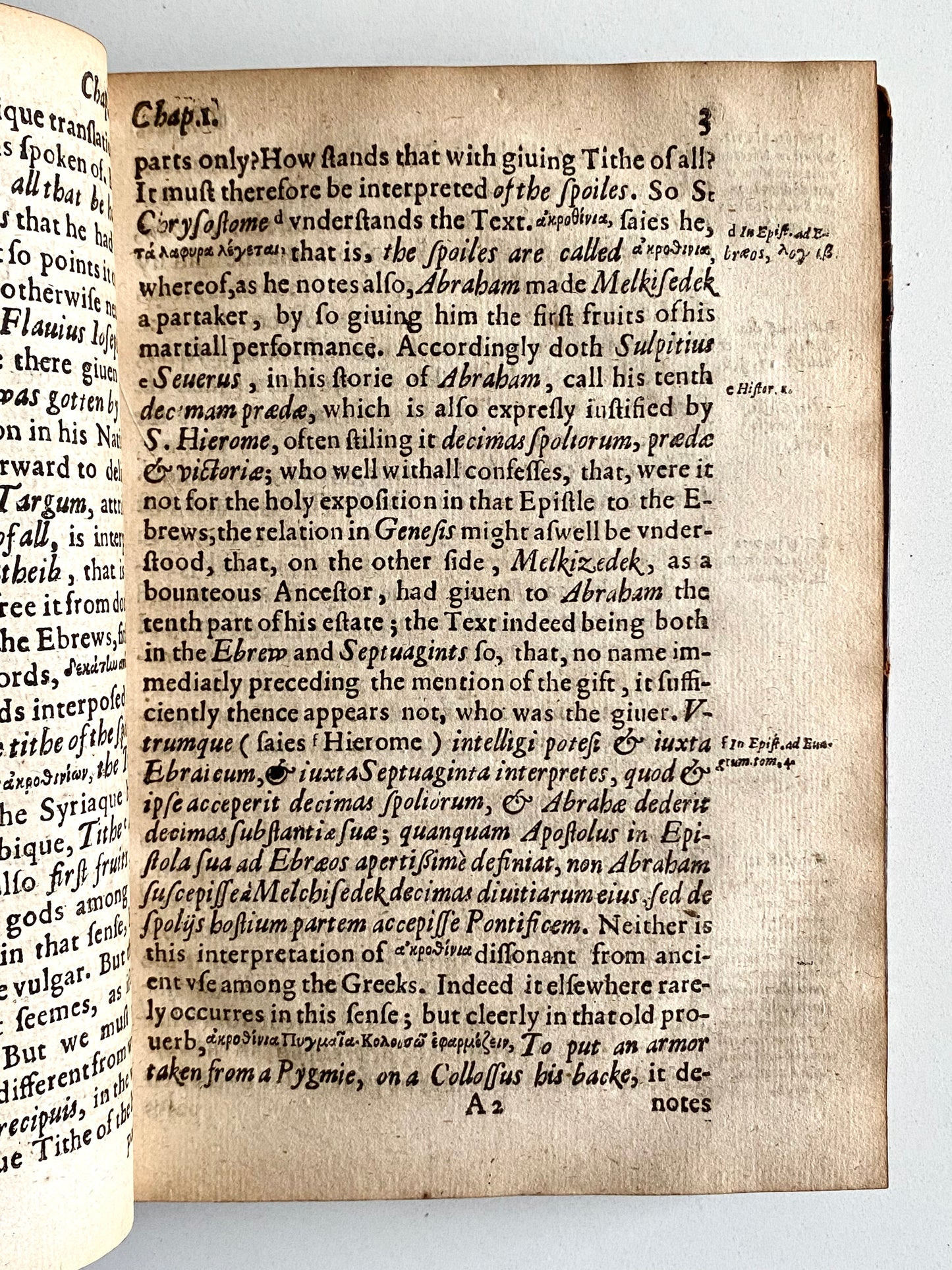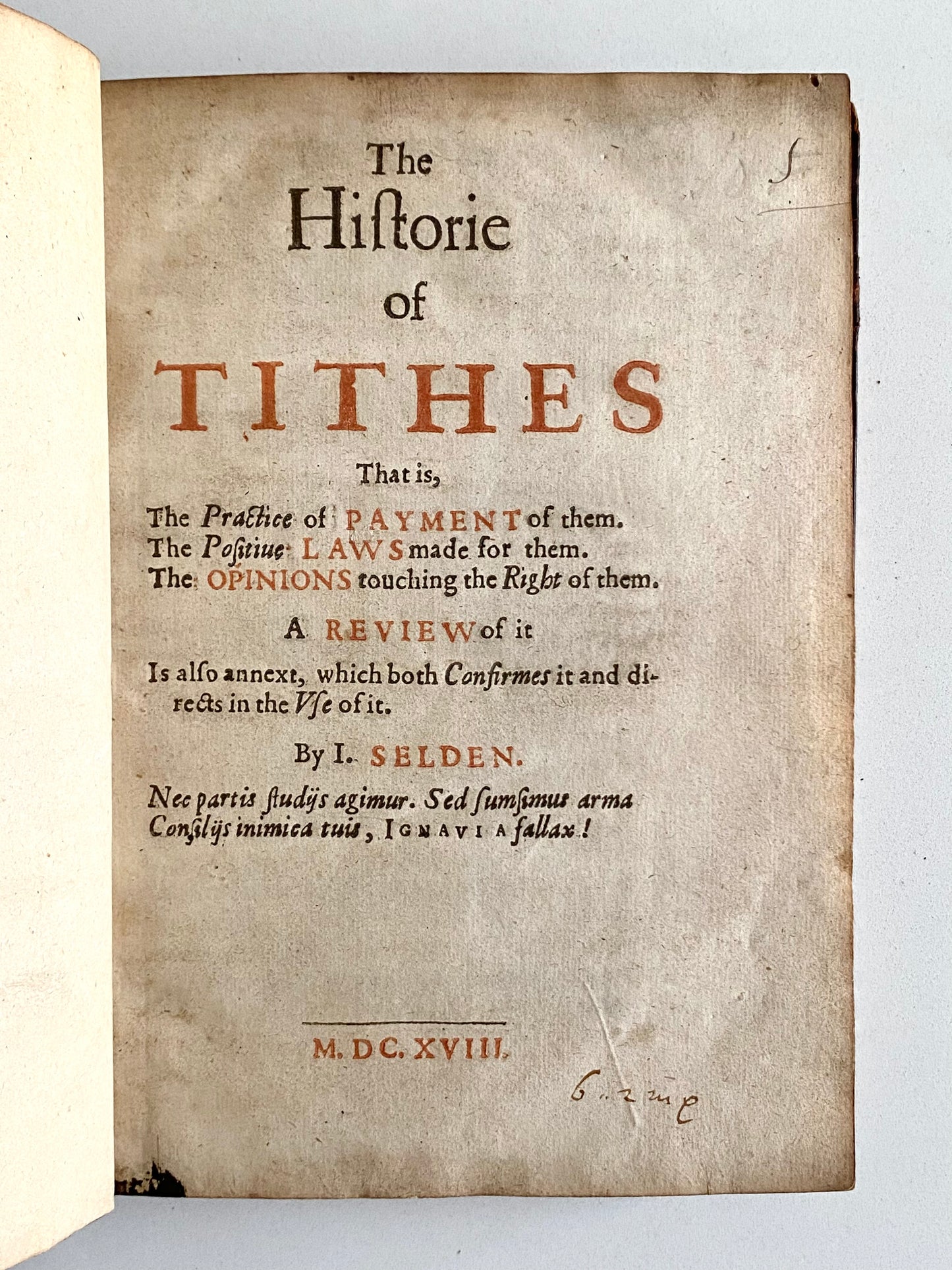Specs Fine Books
1618 JOHN SELDEN. Tithes Proved to be Un-Scriptural and the Custom of Man. 1st Edition.
1618 JOHN SELDEN. Tithes Proved to be Un-Scriptural and the Custom of Man. 1st Edition.
Couldn't load pickup availability
Very, very nicely preserved first edition of one of the most controversial books of the early 17th century.
“Abraham paid Tythes to Melchizedeck, what then? twas very well done of him, it does not follow therefore that I must pay Tythes, no more then I am bound to imitate any other action of Abraham.”
No less than John Milton claimed Selden was the chief of all the learned men in England. This is what made his public views all the more dangerous to the crown. This was no logical or historical hack or a wild-eyed dissenter. This was one of the most respected thinkers in England . . . putting forward that the modern equivalent of billions of dollars in tithe were simply the law of the land rather than the law of God. And the law of the land could change . . .
Thus why the publication of The Historie of Tithes in 1618 set off an absolute political uproar. Selden attempted to demonstrate that the laity's financial obligation to support the church had arisen out of custom over centuries, not out of any law of nature or divine right instituted by Scripture. Needless to say, Selden’s conclusions bore disturbing implications for the contemporary English church, which depended on the governmentally required and harvested ten percent. The clergy protested Selden’s work vigorously. King James I also objected, viewing the publication as an indirect threat to his own claim of rule by divine right.
Selding was summoned by the lords of the high commission and privy council. They stopped short of asking him to recant his views and settle for his apology for having given offense. This compromise was probably made available due to the influence of his good friend, Ben Johnson. It was a compromise he could live with; the views had already been communicated and he avoided prison. The remaining copies of the book were withdrawn from sale and its further printing made illegal.
Selden, John. The Historie of Tithes. That is, The Practice of Payment of them. The Positive Laws made for them. The Opinions touching the Right of them. A Review of it is also annext, which both Confirmes it and directs in the use of it. 1618. 492pp.
Very good example in original boards, very attractively respined. Textually crisp and clean. Aside from some very minor rubbing to board extremities, an exemplary copy.
Share
